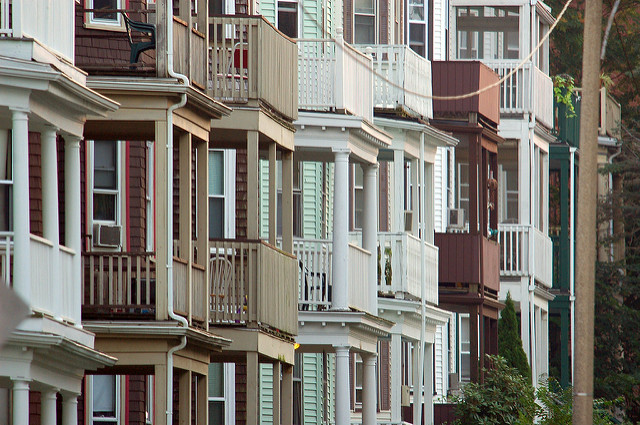Pros and Cons of a Parking Garage for Your Boston Condo Development
It’s no secret that parking in Boston is … difficult. That’s not surprising, given that the city was famously laid out by cows meandering around the Common. Whether or not this is true, or if the city just sprang up randomly since settlers were too busy surviving winters to worry too much about urban planning, Boston’s streets are still narrow and haphazard. And this makes parking a challenge. If your survived the record snowfall of the 2015, you know all too well just how cutthroat finding a spot can be.
Because of that, the city has a long history of requiring developers to include a parking garage — or at least a lot — when they apply for permits for new condo and high-rise developments. The thinking was that adding a hundred new housing units without making space for the cars that came with them would simply be too big a burden on already tight streets.
Looks like that requirement may be passé. Lovejoy Wharf is opening this spring, and it was approved without the addition of a single new parking space. This new Boston condo development is near North Station, though, and the prevailing argument was that living in that prime bit of real estate put so much public transportation within easy reach that people there could get by without a car anyway.
And believe it or not, the city agreed.
Boston Condo Developers: Do You Need Parking?
With what could potentially signal a major change in city housing policy on the horizon, developers have a choice to make: To build a Boston parking garage, or not? Consider the pros and cons of including parking in your building plan:
The Pros
- Faster Approval: Though it’s anyone guess what the city is thinking at any moment, history comes down on the side of including parking in development plans. Lovejoy Wharf might be a unique case, especially considering its proximity to the Orange and Green Lines, along with the Commuter Rail and bus service.
- Higher Prices: If you build that parking garage, you’ll likely be able to sell your units for more money. Consider that Back Bay parking spaces can go for up to $80,000 a piece — and that’s without the living space attached. In a parking-starved neighborhood, an economical garage plan could pay for itself — and then some.
- Boost Customer Interest: Adding a guaranteed parking spot to your list of amenities is sure to get people in the door to have a look at your project. If those spots are protected from winter’s snowy blast, all the better.
The Cons
- Larger Footprint: Parking lots require a big parcel of land, and that’s a scarce commodity in Boston. Depending on the neighborhood, paving over a few acres could be a tough sell without significant landscaping to make it more appealing to abutters.
- Underground Parking Is Pricey: Building a parking structure can cost about $21,000 per space, and that can skyrocket if you’re planning a Big Dig of your own to get those spaces underground. Do the math to make sure your financing and expected market supports the cost.
- Millennials Might Not Care: If you’re marketing to a younger demographic, the cost of adding parking might not pay off. Millennials are famously car-averse, and many prefer to continue their college lifestyle by walking and using public transit anyway.
At the end of the day, whether your condo development should have a parking garage or not depends on two major considerations: location and audience. If your address isn’t near transit, those parking spaces will be a lot more appealing — no matter how young and hip your target homebuyer or renter is.

